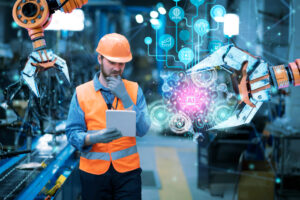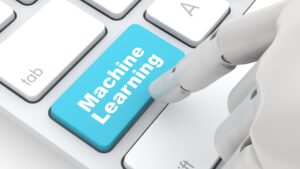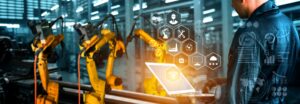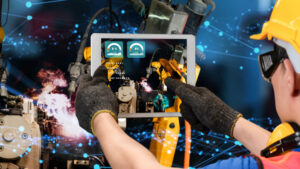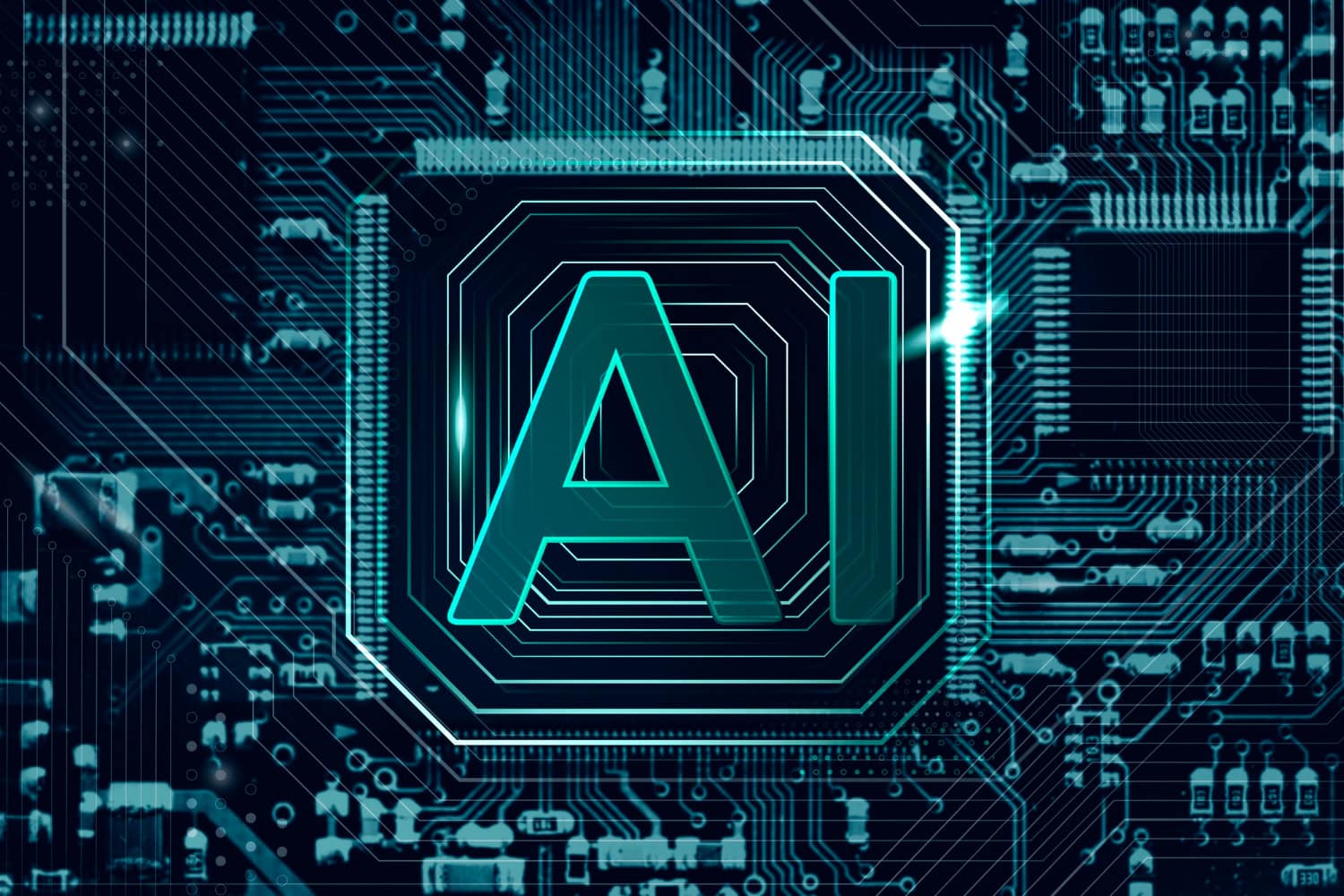
In today’s competitive manufacturing landscape, leveraging advanced technology is key to staying ahead. Machine learning has emerged as a pivotal force, fundamentally transforming how manufacturers operate. By harnessing artificial intelligence, machine learning algorithms analyze vast datasets to extract valuable insights, optimizing production processes, reducing costs, and enhancing product quality.
Machine learning is revolutionizing every facet of manufacturing. From automating repetitive tasks to predicting maintenance needs, this technology streamlines operations and boosts efficiency. Data-driven decisions are now within reach, leading to heightened productivity and profitability.
Integrating machine learning into workflows unlocks new growth and innovation opportunities. Real-time data can optimize production schedules, minimize downtime, and improve customer satisfaction. This article explores the multifaceted impact of machine learning on the manufacturing industry and the significant benefits it offers. Discover the exciting future that awaits with machine learning at the forefront.
What is Machine Learning
Machine learning (ML) and artificial intelligence (AI) are often confused but differ in scope. AI is the broad concept of using computers to mimic human thinking, while ML is a subset of AI that enables machines to learn from data without explicit programming.
In manufacturing, two main ML models are used: supervised and unsupervised learning. Supervised learning analyzes large datasets with predefined outcomes, useful for predicting machine lifespan and equipment failure. Unsupervised learning identifies patterns in data without known outcomes, helping detect anomalies and faulty components. These applications demonstrate ML’s practical value in optimizing manufacturing processes.
Examples of ML in Manufacturing
Optimizing Production Processes with Machine Learning
Machine learning is integral to optimizing production processes. By analyzing historical and real-time data, algorithms identify patterns and trends that might be overlooked by human analysis. This capability enables manufacturers to make informed decisions that enhance operational efficiency, reduce waste, and boost productivity. Additionally, machine learning facilitates predictive maintenance, production scheduling, and inventory optimization. Leveraging these capabilities helps manufacturers maintain a competitive edge in a rapidly evolving market.
Revolutionizing Quality Control with Machine Learning
Quality control is crucial in manufacturing, and machine learning algorithms are transforming this domain. These algorithms analyze data from diverse sources to detect defects, anomalies, and variations in products or processes. Implementing machine learning in quality control allows early detection of potential issues, resulting in improved product quality and customer satisfaction. Real-time monitoring and adjustment of production processes ensure consistent quality standards, helping manufacturers uphold their reputation for excellence.
Predictive Maintenance: A Game Changer in Manufacturing
Predictive maintenance is a standout application of machine learning in manufacturing. By analyzing sensor data and maintenance records, machine learning algorithms can forecast equipment failures. This proactive approach helps avoid costly unplanned downtime and minimizes production disruptions. Implementing predictive maintenance strategies powered by machine learning optimizes maintenance schedules, extends equipment lifespan, and reduces overall maintenance costs.
Enhancing Supply Chain Management with Machine Learning
Machine learning enhances supply chain management by optimizing inventory levels, predicting demand fluctuations, and improving logistics planning. Algorithms analyze historical sales data, market trends, and seasonality to provide accurate demand forecasts. This optimization streamlines supply chain operations, reduces lead times, and ensures timely product delivery, resulting in cost savings and improved customer satisfaction.
Innovating Inventory Management with Machine Learning
Inventory management is critical in manufacturing, and machine learning offers innovative solutions. Algorithms analyze historical data and market trends to forecast demand accurately, enabling manufacturers to optimize inventory levels, reduce excess stock, and prevent stockouts. This proactive approach to inventory management leads to cost savings, improved cash flow, and enhanced operational efficiency.
Driving Product Design and Development with Machine Learning
Machine learning is transforming product design and development. Analyzing customer feedback, market trends, and competitor data helps identify product opportunities and design innovative solutions. Machine learning also supports rapid prototyping, simulation, and testing, accelerating time-to-market. Incorporating machine learning in product development drives innovation, improves product quality, and keeps manufacturers competitive.
Machine Learning and Automation in Manufacturing
Automation is a key driver of efficiency in manufacturing, with machine learning playing a crucial role. Algorithms can automate repetitive tasks, optimize production workflows, and enhance decision-making processes. Integrating machine learning with automation technologies, such as robotics and IoT devices, results in smart factories that are agile, responsive, and cost-effective. This transformation enhances operational efficiency and reduces labor costs.
Overcoming Implementation Challenges of Machine Learning in Manufacturing
Implementing machine learning in manufacturing comes with challenges. Data integration is a significant hurdle, as manufacturers often have disparate data sources. Additionally, there may be resistance to change from employees concerned about job displacement due to automation. Investing in training programs to upskill the workforce in data analytics and machine learning is crucial. Overcoming these challenges requires strategic planning, strong leadership support, and a clear vision for leveraging machine learning to drive growth and innovation.
Conclusion: The Future of Machine Learning in Manufacturing
Machine learning is transforming manufacturing by optimizing production processes, enhancing quality control, enabling predictive maintenance, streamlining supply chain management, and improving inventory management. Its impact on product design and development drives innovation and competitiveness. Machine learning-powered automation is revolutionizing operations, leading to increased efficiency and cost savings. While challenges exist, the future of machine learning in manufacturing is promising, offering tremendous potential for growth and innovation. Embracing machine learning technologies and fostering a culture of continuous learning and adaptation will unlock new opportunities, ensuring manufacturers stay ahead in an ever-evolving industry landscape.



Made for production, manufacturing, and beyond:
Discover how NC-Vision can help you bridge the gap betwwn IT and OT to support data-driven decisions and increase business efficiency. Don’t let complexity hold you back. Schedule a free platform tour today and see the difference for yourself.
NC-Vision is committed to helping the manufacturing industry make the most of no-code software development. We offer a range of no-code solutions that enable companies to quickly and easily create custom solutions that are tailored to their needs. Our tools allow companies to create solutions faster, more cost-effectively, and with more customization than ever before.







